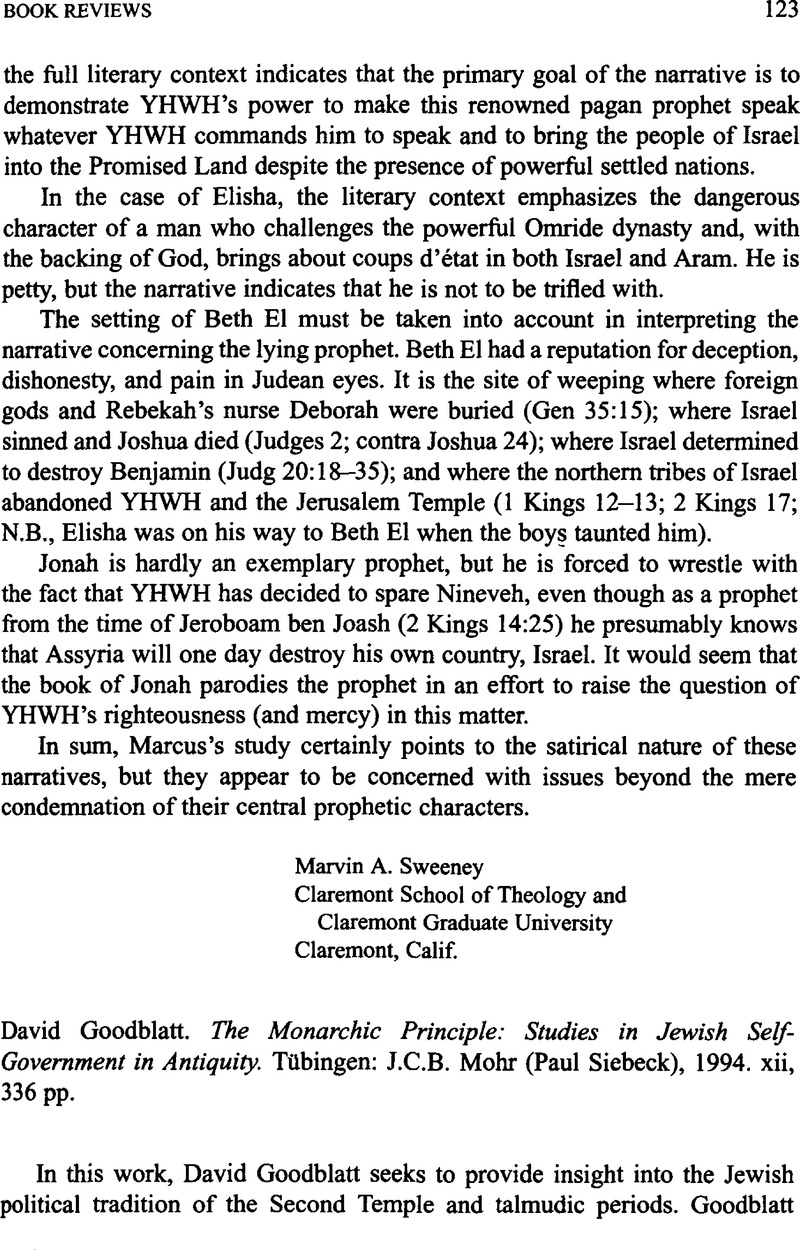No CrossRef data available.
Article contents
David Goodblatt. The Monarchic Principle: Studies in Jewish Self-Government in Antiquity. Tübingen: J.C.B. Mohr (Paul Siebeck), 1994. xii, 336 pp.
Published online by Cambridge University Press: 15 October 2009
Abstract

- Type
- Book Reviews
- Information
- Copyright
- Copyright © Association for Jewish Studies 1999
References
1. Schwartz, D. R., “Josephus on the Jewish Constitution and Community,” Scripta Classica Israelica 7 (1983–84): 43–51.Google Scholar
2. See especially Assumption of Moses 6:1.
3. Hultgard, A., L'eschatologie des Testaments des Douze Patriarches, vol. 1 (Uppsala, 1977), pp. 15–45.Google Scholar
4. Levine, L. I., The Rabbinic Class of Roman Palestine in Late Antiquity (Jerusalem: Yad Izhak Ben-Zvi, 1989), pp. 76–83.Google Scholar
5. See Levine, L., “The Status of the Patriarch in the Third and Fourth Centuries: Sources and Methodology,” Journal of Jewish Studies 47, no. 1 (1996): 11 f.CrossRefGoogle Scholar
6. Goodblatt, on p. 142, wrongly identifies the passage as Ruth Rabbah 4:4.
7. For an in-depth discussion of the passage and its parallels, see Miller, S. S., “Those Cantankerous Sepphoreans Revisited,” in Ki Baruch Hu: Ancient Near Eastern, Biblical, and Judaic Studies in Honor of Baruch A. Levine, ed. Chazan, R.M, W. W. Hallo, and L. H. Schiffinan (Warsaw, Ind.: Eisenbrauns, 1999), pp. 550–57.Google Scholar


